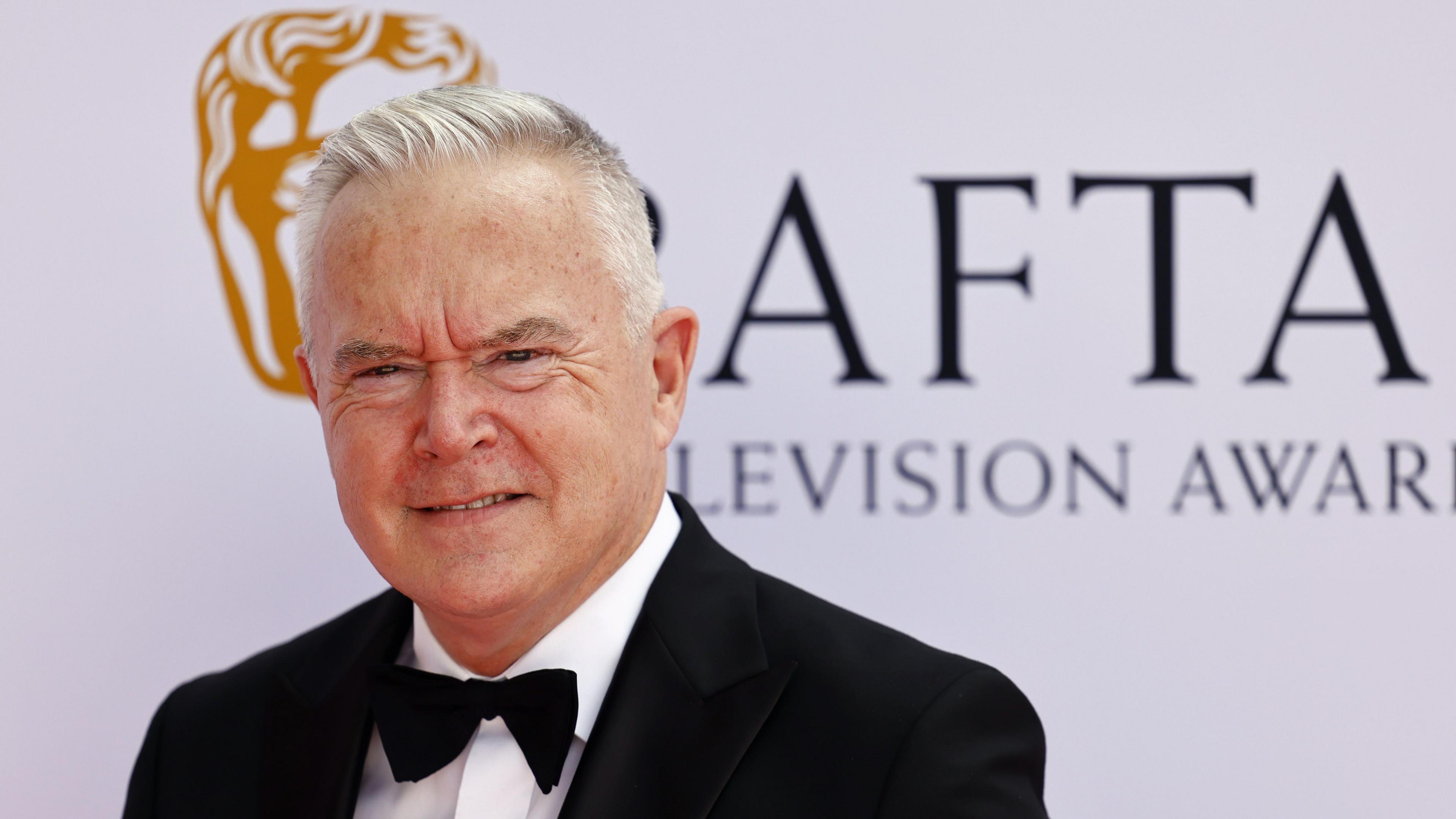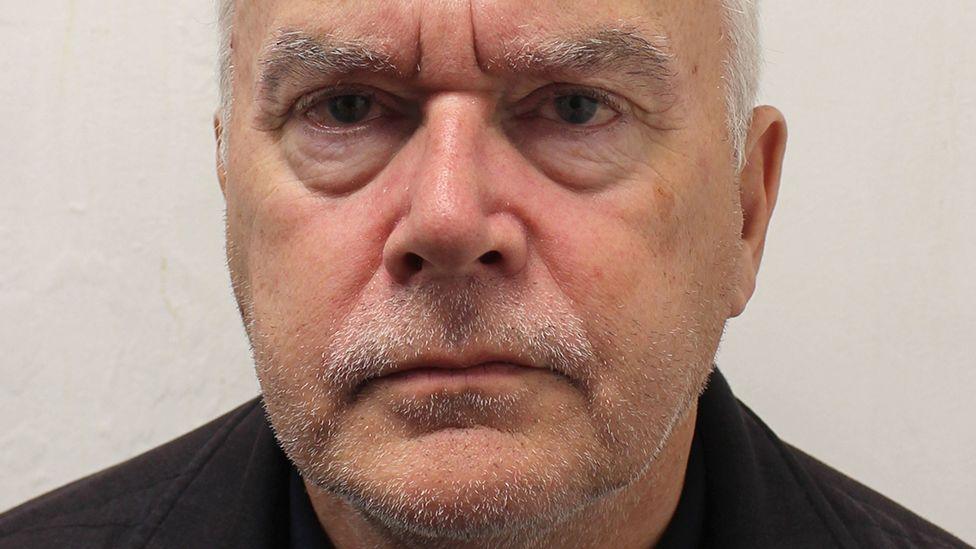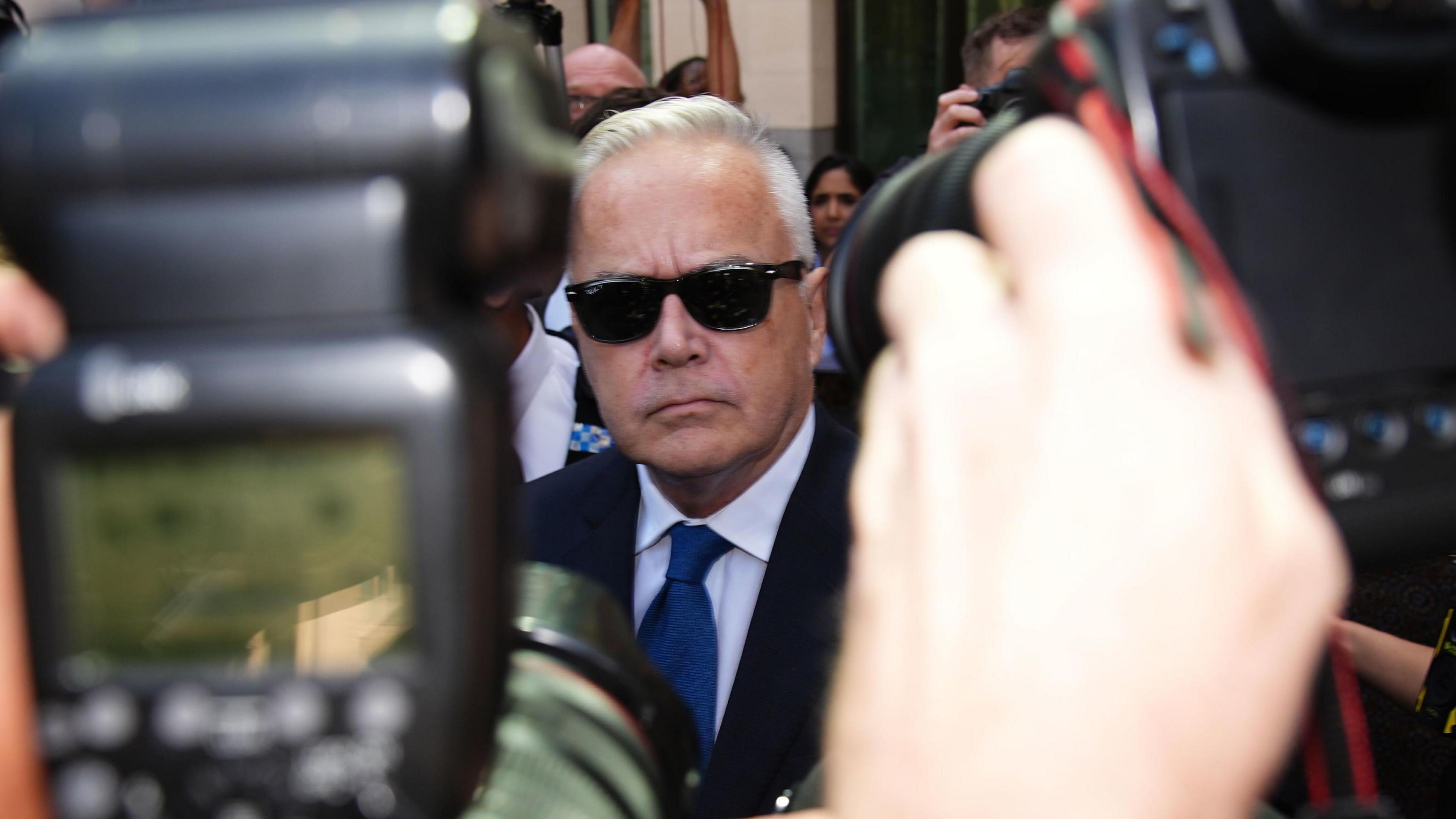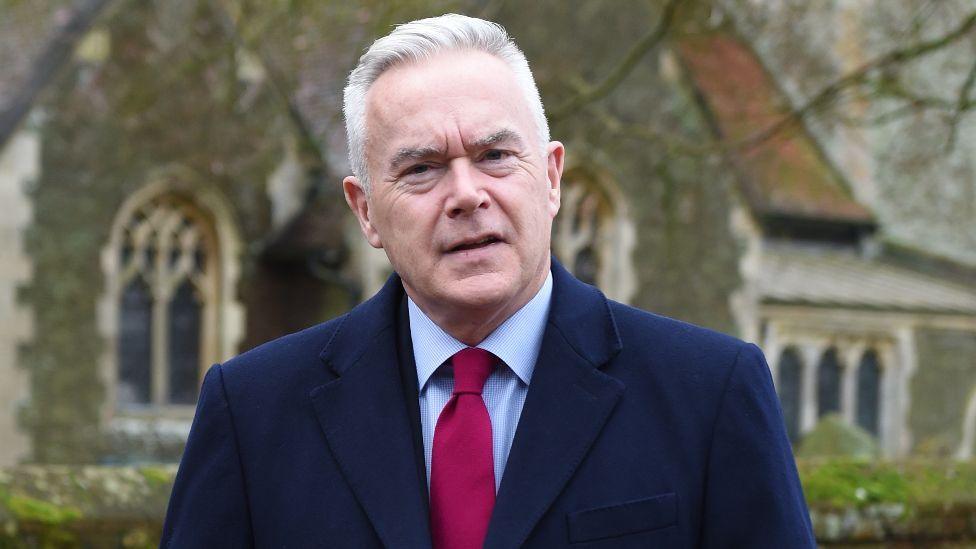Huw Edwards to keep Bafta Awards despite rule change

Edwards won best presenter seven times at the Bafta Cymru Awards between 2002 and 2017
- Published
Disgraced news presenter Huw Edwards will keep the Bafta awards he won, but the TV and film organisation is to change its rules for people who are convicted of serious crimes in the future, it has announced.
Edwards won seven individual awards for presenting, all from the Welsh branch of Bafta.
In September, he was given a six-month suspended prison sentence after he admitted charges involving indecent images of children.
Bafta's new rules will allow it to revoke prizes awarded after 2025, and said it "thought very carefully about whether we could try to apply this criteria retrospectively now", but that "it would be impossible to do this properly".
Edwards won his Bafta Cymru awards for documentaries including Aberfan - The Fight for Justice, The Story of Wales and The Prince And The Plotter.
Bafta chair Sara Putt wrote in a letter to members: "Earlier this year we were shocked by the news of the former BBC newsreader Huw Edwards’ arrest and subsequent conviction for child pornography offences.
"He won seven individual Bafta Cymru awards for television presenting between 2002 and 2017.
"Following the news, deeply complex questions were raised regarding historic awards won by individuals and specifically, whether awards won in competition should ever be removed retrospectively."
'Exceptional grounds'
Putt launched a review, which has concluded that "there are exceptional grounds in which an award won in competition should be reviewed and possibly rescinded".
The organisation will consider whether to revoke an award for "proven dishonesty, and the very rare instance of a winner being convicted of a serious criminal offence resulting in a prison sentence".
Winners could lose their awards if they receive a prison sentence of at least three months, whether suspended or not, or are "proven to have used duplicitous and/or illegal methods in the course of making their work".
However, the rules will not apply to people who won awards before 2025.
"We thought very carefully about whether we could try to apply this criteria retrospectively now, or introduce a moratorium," Putt wrote.
"Our awards span the last 78 years. Where would we reasonably draw the line? Could we choose to only look back one, five or 50 years?
"We agreed it would be impossible to do this properly. So we will look forward and apply this criteria to all competitive awards presented from 2025 onwards.
"No solution is perfect and there may be instances where the outcomes of this review are tested in the future, so we will review these principles and processes along with our other awards rules every year."
Related topics
- Published16 September 2024

- Published16 September 2024

- Published31 July 2024
